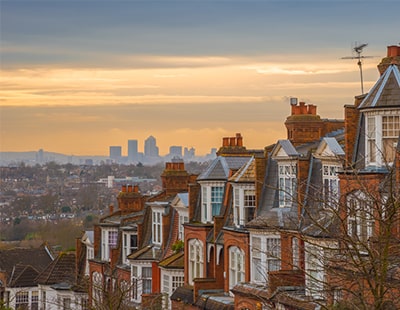
The political alliance between the Scottish National Party and the Scottish Greens is likely to stay in place until 2026.
Arguably the most significant policy pushed through as a result of the alliance, which has been in place since 2021, has been the controversial rent controls and eviction ban, both of which have been in place since mid-2022 in Scotland.
Under the form of proportional representation used to elect the Scottish Parliament at Holyrood, the Greens are required to give the ruling SNP an absolute majority for key votes.
In return, the SNP has accepted some policies which it had not agreed in its own election manifesto.
Over last weekend, ahead of the announcement that the alliance would stay for three more years, Scottish media reported some SNP figures as saying the deal was “killing us” and that some Green ministers were “embarrassing”.
One SNP member of the Scottish Psrliament - Fergus Ewing - has previously called the Greens "fringe extremists" and has now said in a Scottish national paper that they should "never be anywhere near government".
Reiterating his call for a re-vote on the deal, the MSP says: "The Greens are seen as primarily responsible for a whole series of policy disasters over the last two years. It’s time to end this dreadful deal before it brings us down."
And Robin Harper, a former leader of the Scottish Greens, has recently quit the party calling its current leadership “careless and cocky” and “arrogant and abrasive.”
Current Green co-leader Patrick Harvie is the architect of the rent control and eviction ban policies.
In June the Scottish Parliament agreed to another six month extension to rent controls, taking them up to March 2024.
This means that most in-tenancy private rent increases would continue to be capped at 3.0 per cent and, alternatively, private landlords could apply for increases of up to 6.0 per cent to help cover specific increases in costs in a specified period where these costs can be evidenced.
Evictions will also be banned for a further six months for most tenants, except in several specified circumstances: increased damages for unlawful evictions of up to 36 months’ worth of rent would continue to be applicable.
Harvie says that over the period from 2018 to 2020, 63 per cent of social rented households and 40 per cent of private rented households did not have enough savings to cover even a month of income at the poverty line, compared to 24 per cent of households buying with a mortgage and nine per cent of households owning outright.
“Consequently, rented sector households entered the cost of living crisis in a more vulnerable position than owner-occupiers” he told the Parliament recently.














%20-%20IMAGE%20Client%20Accounting%20%E2%80%93%20what%20are%20your%20options.jpg)





Join the conversation
Be the first to comment (please use the comment box below)
Please login to comment